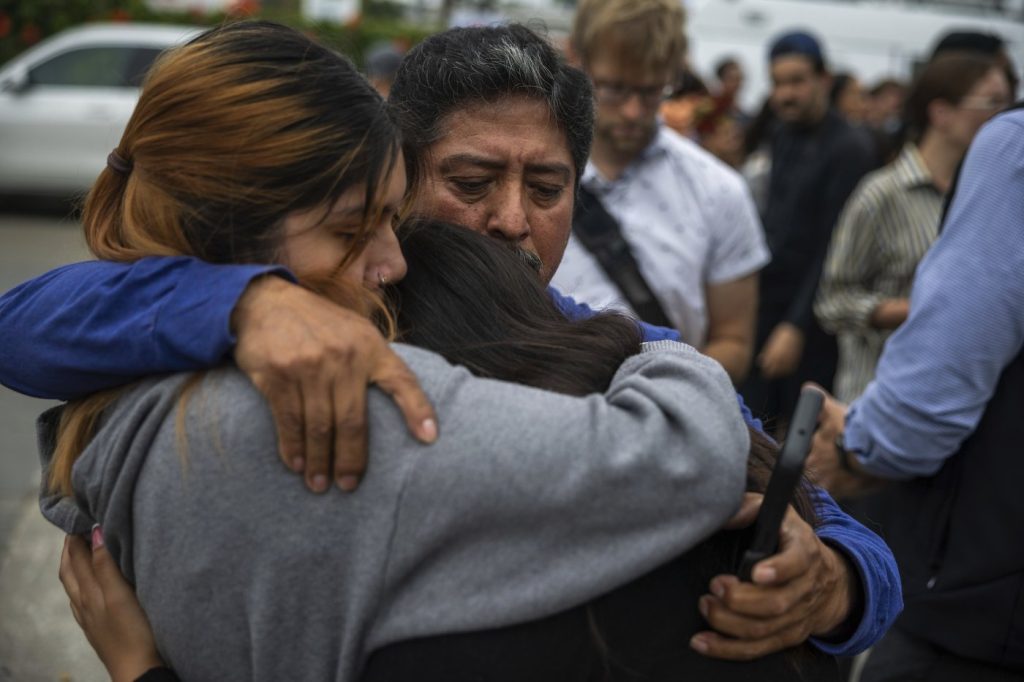Dozens of mayors from various cities in the Los Angeles area united on Wednesday to urge the Trump administration to cease the heightened immigration raids that have incited fear among their constituents and led to widespread protests across the United States. Despite their calls, there was little indication that President Donald Trump would respond positively to their requests.
Approximately 500 National Guard troops, deployed to assist with protests in Los Angeles, have been trained to accompany immigration agents during operations. Major General Scott Sherman, who oversees the deployment, indicated that although some troops had already participated in immigration-related missions, it was premature to determine if such operations would persist after the protests recede.
“We are expecting a ramp-up," Sherman remarked, expressing concern about the nationwide protests. He emphasized his focus on events in Los Angeles, underscoring the apprehension surrounding the situation. Later in the evening, a demonstration in Los Angeles' civic center descended into chaos as police in riot gear clashed with protesters, resulting in injuries and several arrests during an enforced curfew.
The mayors, including Los Angeles Mayor Karen Bass, voiced their grievances at a news conference, pleading with Trump to halt the use of armed military alongside immigration agents. Brenda Olmos, the vice mayor of Paramount, decried the aggressive actions taken by law enforcement, recounting her own experience of being hit by rubber bullets during the weekend. “You need to stop these raids," she implored.
Mayor Bass added that the White House was instigating fear through the immigration raids. She stated that the curfew, which encompasses a one-square-mile area in downtown Los Angeles, would remain in effect for as long as necessary, particularly if the military presence persisted. “If there are raids that continue, if there are soldiers marching up and down our streets, I would imagine that the curfew will continue," she stated.
The crackdown has impacted a diverse group of individuals, including asylum seekers and those awaiting their immigration hearings. In response, California's Democratic Governor Gavin Newsom filed a lawsuit seeking to prevent military involvement in federal immigration operations within Los Angeles. The Trump administration criticized this legal move as a "crass political stunt," claiming it jeopardized American lives.
Military engagement in law enforcement activities, including deportations, was becoming more prevalent, reflecting Trump's aggressive approach toward immigration policy. National Guard troops are authorized to temporarily detain individuals who assault officers, although arrests must be carried out by law enforcement agencies. Trump, on his Truth Social platform, claimed that without military intervention, Los Angeles "would be burning to the ground."
As parts of Los Angeles faced intensified police presence, the protests extended to other major cities like Dallas, Austin, Chicago, and New York, with thousands of demonstrators taking to the streets and numerous arrests occurring. New York police reported taking 86 individuals into custody during protests in lower Manhattan, with the majority of protests being peaceful, according to Commissioner Jessica Tisch.
In Austin, police utilized chemical irritants to disperse crowds, while Texas Governor Greg Abbott's office stated that Texas National Guard troops were on standby in anticipation of planned demonstrations. Meanwhile, protests initially sparked by federal immigration raids resulted in significant unrest, with Los Angeles police reporting nearly 400 arrests since the onset of the protests.
This series of events represents a critical moment in the ongoing discourse surrounding immigration enforcement and civic rights, highlighting the tensions between governmental authority and community safety amidst the backdrop of widespread protests.











